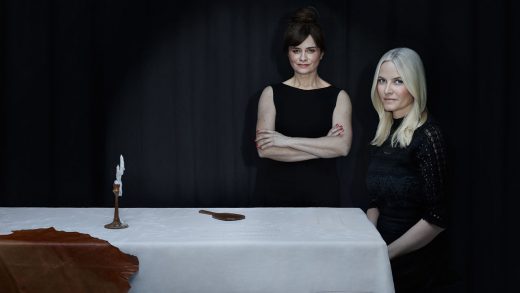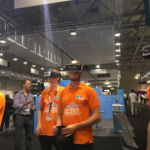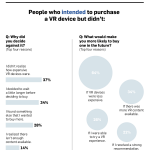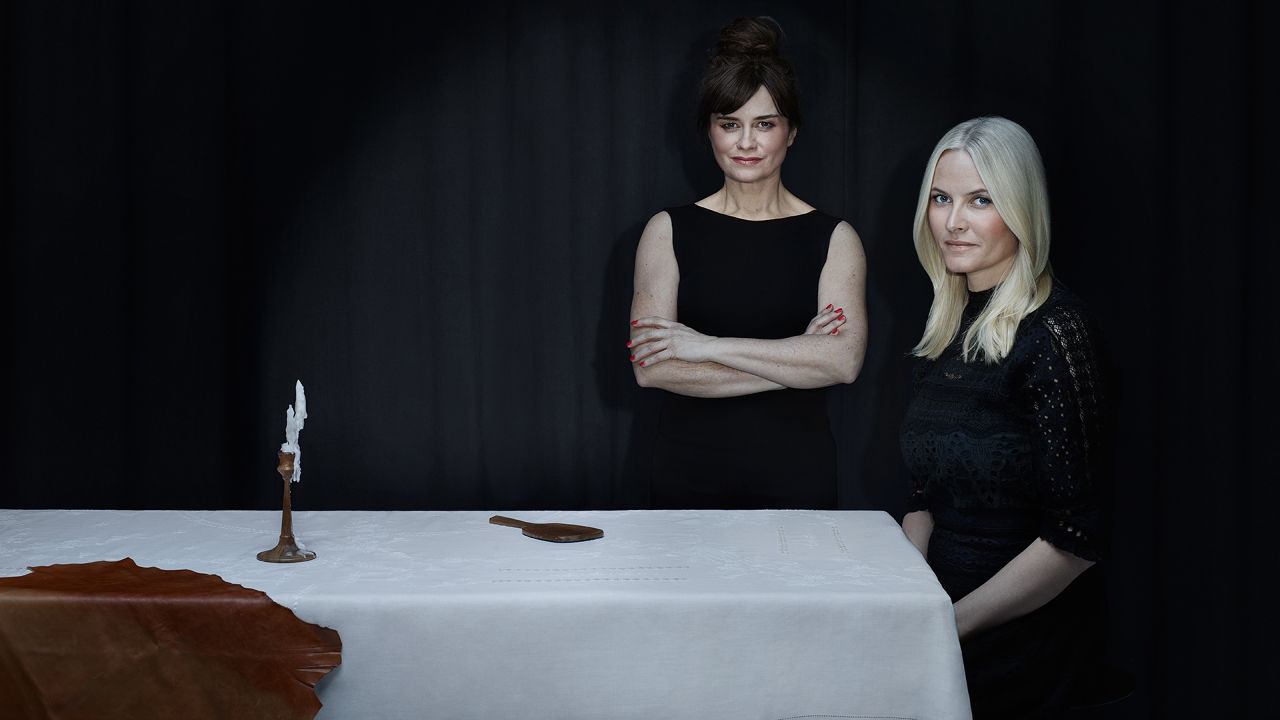How A Princess And A CEO Are Applying The VC Model To Philanthropy
“It was overwhelming, actually,” recalls Kate Roberts, CEO of the philanthropic initiative the Maverick Collective, of the emotions that flooded in when she gave birth to her daughter in 2011. As a senior vice president at the not-for-profit Population Services International (PSI), she knew the challenges women face all over the world, including gender-based violence and lack of access to contraception. And she knew that despite all the rhetoric about investing in women, just two cents of every development dollar actually goes toward programs for girls.
The following year, Roberts accompanied Her Royal Highness the Crown Princess Mette-Marit of Norway, a longtime HIV/AIDS activist and also a mother of a young daughter, on a visit to a PSI project in New Delhi. The two had met in passing at conferences but grew close as they toured the city’s slums and hospitals, meeting with women affected by HIV and tuberculosis. “We talked a lot about the need to put major resources behind girls and women,” says Roberts. “We got very emotional about it.”
They decided that if the current model for philanthropy wasn’t working to lift girls out of poverty, they needed to create something new, combining Roberts’s development and marketing experience—plus access to PSI’s 9,000 employees across 65 countries—with the crown princess’s international clout and track record of giving voice to those in need. They devised a strategy to enlist women (who were able to invest at least $1 million each) to run innovative pilot programs, though Roberts makes sure to point out that the organization “is not a club for rich women.” The focus on private capital was strategic: Traditional funders typically need to see results before they’ll pour money into something. “Private money is less risk-averse,” says the crown princess. This freedom would allow the collective to gamble on experimental ideas.
The crown princess discussed the idea with Melinda Gates, who joined their effort as cochair. “It seemed like it might inspire people,” Gates says. Soon, the Bill & Melinda Gates Foundation awarded PSI $5 million over five years to turn the notion into a reality. Since then, the founding members—14 women, aged 26 to 72—have invested $19.8 million of their personal funds in their respective projects, which span 13 countries. Members help design and oversee three-year projects that test new products or services for girls and women in developing countries. If successful, these models are then pitched as larger-scale programs to PSI’s bigger donors, including the Gates Foundation and the United States Agency for International Development. So far, the collective has been responsible for attracting $60 million for new health resources for girls. “We know that health is the most basic [way] out of extreme poverty,” Roberts says. “If you’re not healthy, you can’t go to school or work. It’s the core of everything.”
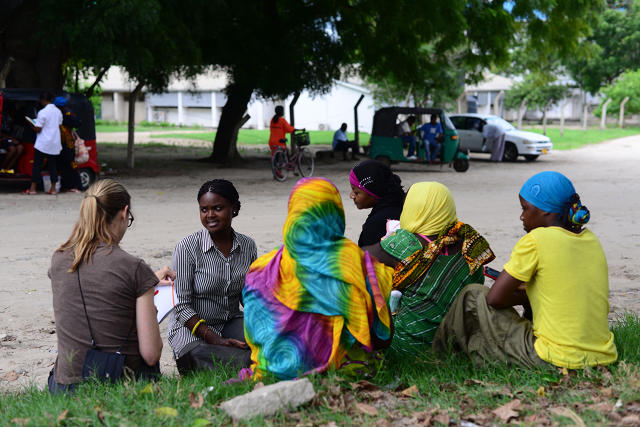
The founding members were selected by Roberts and the crown princess, and recruited individually. Each worked with PSI experts to identify two or three impact areas that aligned with her interests and zeroed in on a geographical location to target. They visited the local community to better understand its needs and challenges. For the crown princess, this connection between donor and recipient is integral for creating projects that actually work. “[If] you find something that resonates deeply within a person,” she says, “you unlock the potential in a much more long-term and sustainable way.”
Founding member Kathryn Vizas, a former litigation attorney for companies including Levi Strauss & Co., traveled to Myanmar in 2013 with Roberts, the crown princess, and the director of global program advocacy at the Bill & Melinda Gates Foundation. There, she spent time with a woman dying of cervical cancer, a disease that is, in many cases, preventable. Because one out of every five women who have the disease is Indian, and PSI has a network of health centers in India, Vizas launched a “screen-and-treat” project in northern India that trains health providers to look for signs of cancerous cells and remove them immediately.
So far, her program has screened 45,000 women, treated 2,000, and educated more than 170,000. But it hasn’t been easy. “I am now very aware of the difficulties convincing not only women patients in India, who feel perfectly healthy and do not understand why they should spend even a little money to be screened, but also the doctors who care for them, to make the test routine everywhere,” Vizas explains. The government in the state of Uttar Pradesh is currently scaling the approach to 28 additional districts with the goal of bringing it to all 75 of them.
Each Maverick member brings her own problem-solving skills into play. For example, Pam Scott, founder of research and branding firm the Curious Company, is using her experience to address unintended pregnancy in Tanzania. “Because I practice human-centered design, it was important that [PSI] not come to me with a program that had been all figured out,” Scott says. “My expertise lies in doing the research, figuring out the design opportunities, writing creative briefs, and working with teams to develop amazing ideas that solve the problem.”
As part of her project, she sent three groups out into Tanzanian villages to conduct research; all came back with the same realization: Girls were paying for taxi rides with sexual favors. Scott helped devise a free taxi service operated for girls, by girls. “It was an insight on Tuesday, an idea on Wednesday, and by Thursday, we had a woman-driven taxi out in the village,” Scott recalls. Her work helped PSI secure a $30 million grant from the Gates Foundation and the Children’s Investment Fund Foundation.
Before Scott signed on to become a Maverick, she was skeptical. Did PSI really want her thoughts and not just her money? Would she be allowed the autonomy to brainstorm and implement ideas? Others had similar questions, so Roberts allowed potential members to interview people on the inside at PSI: board members, scientists, the technical team. Scott was satisfied. “I thought, I should take a go at this,” she says.
Both the crown princess and Melinda Gates attend workshops with donors to share their knowledge. “The founding members don’t want to be held at arm’s length,” Roberts says. “They know when we encounter cost overruns or roadblocks, and they help find solutions.” Many of these women have never worked in development before; PSI offers training in navigating the grant process, communicating with donors, and public speaking. As Roberts says, “This is an executive-management course in saving the world.”
On May 16, the Maverick Collective made its public debut at the Women Deliver Conference, in Copenhagen. Meanwhile, Roberts and the crown princess are busy scouring the world for a new wave of Mavericks—which might even include a few men. “Money doesn’t create change,” Roberts says. “People do.”
A version of this article appeared in the June 2016 issue of Fast Company magazine.
Fast Company , Read Full Story
(35)

